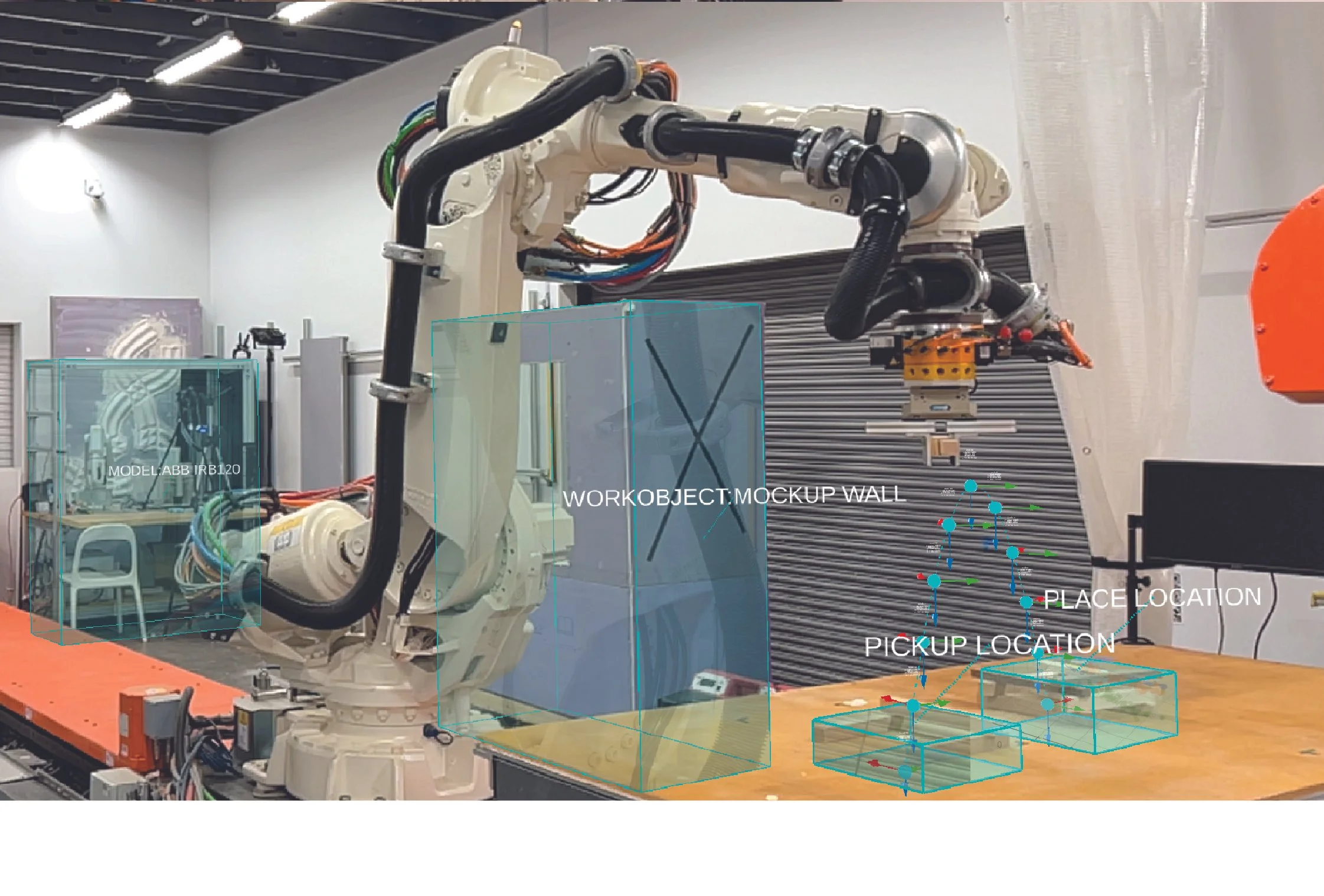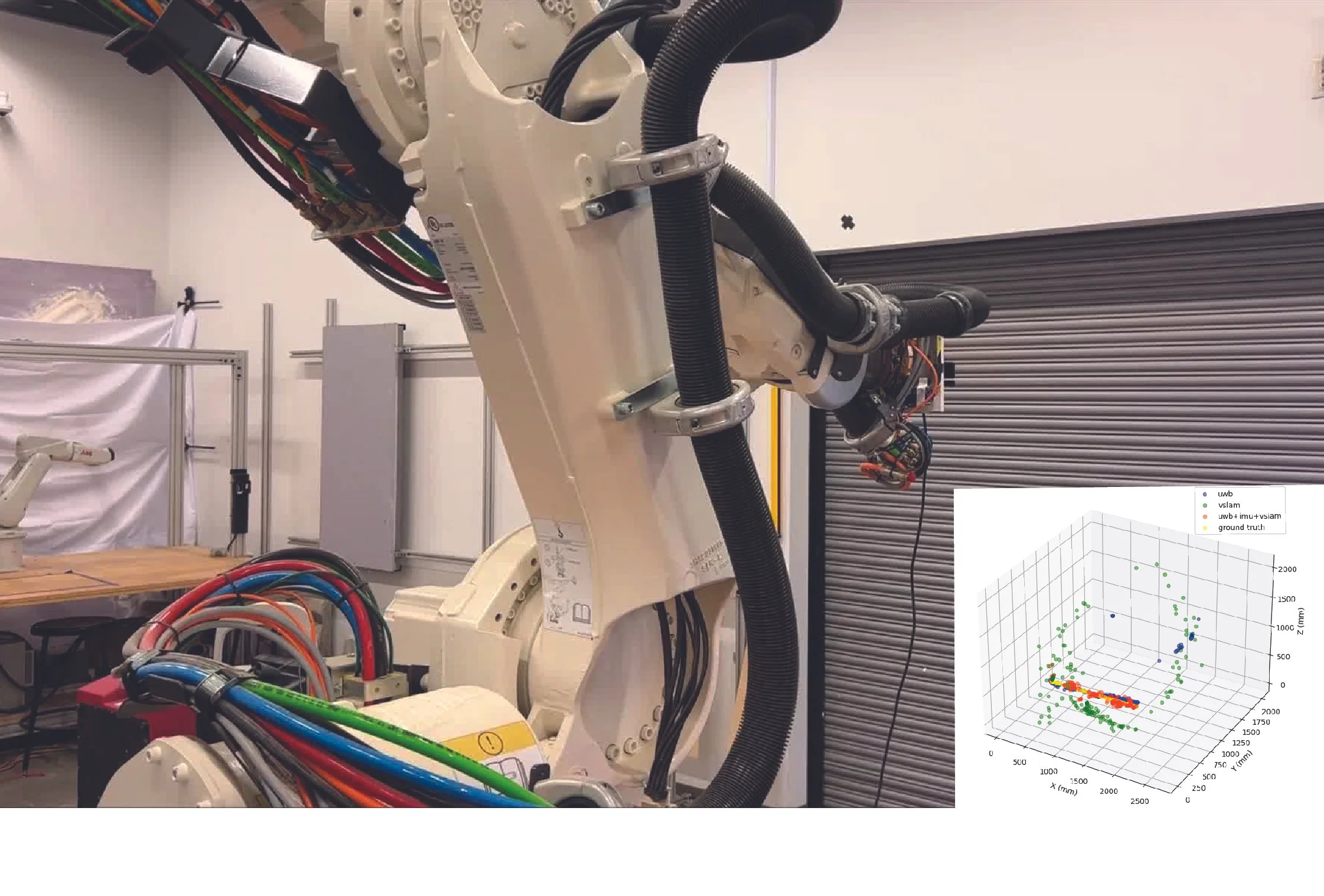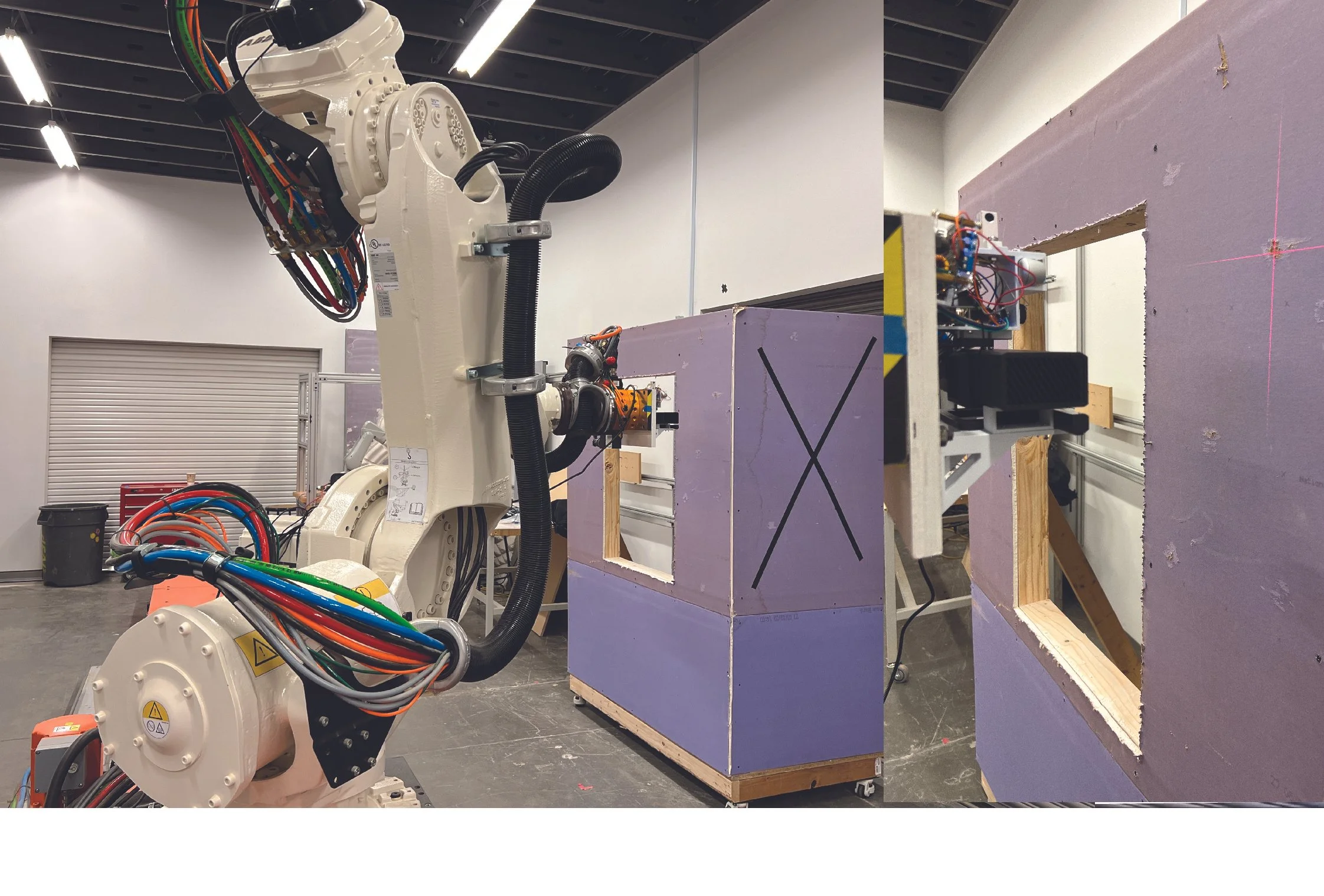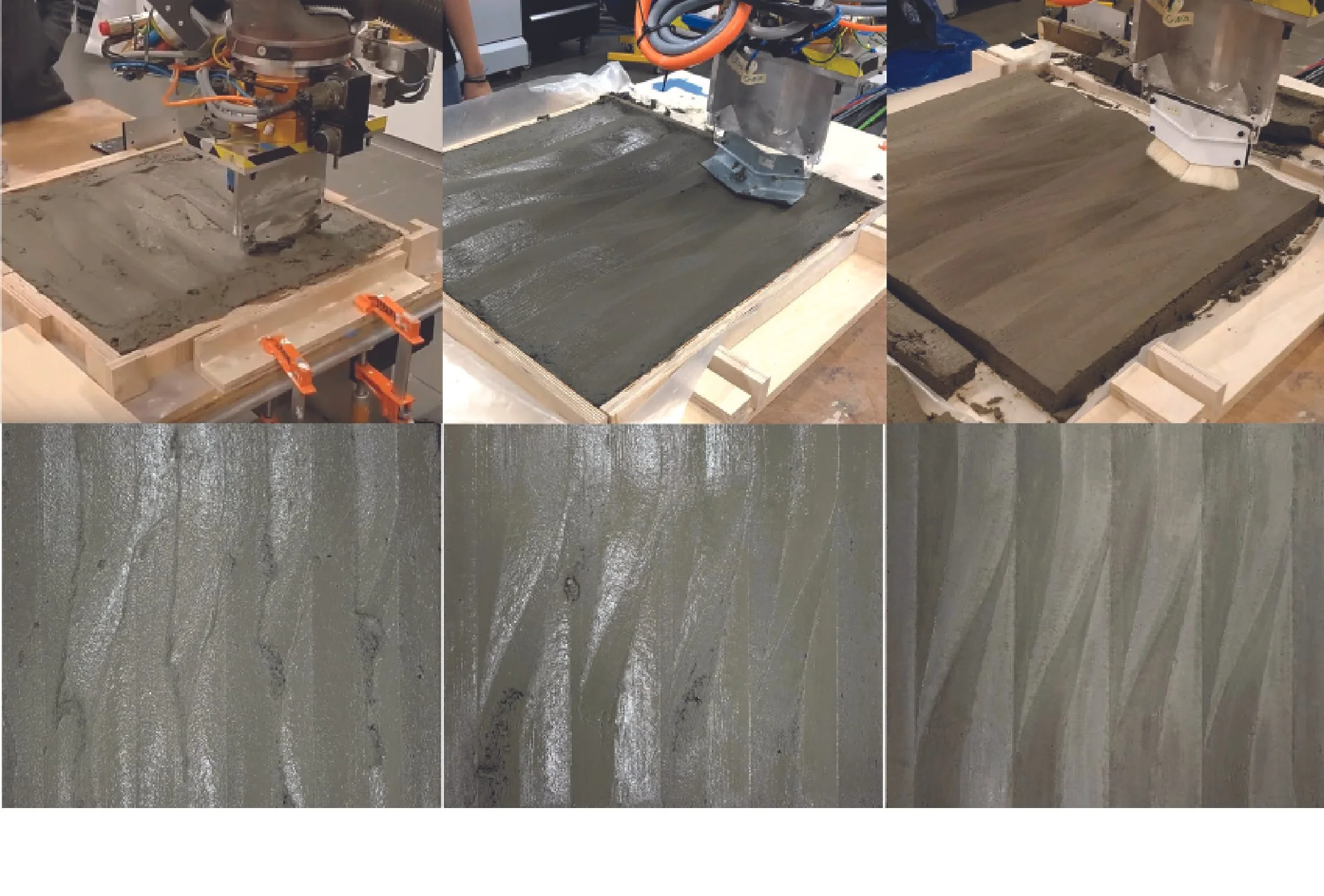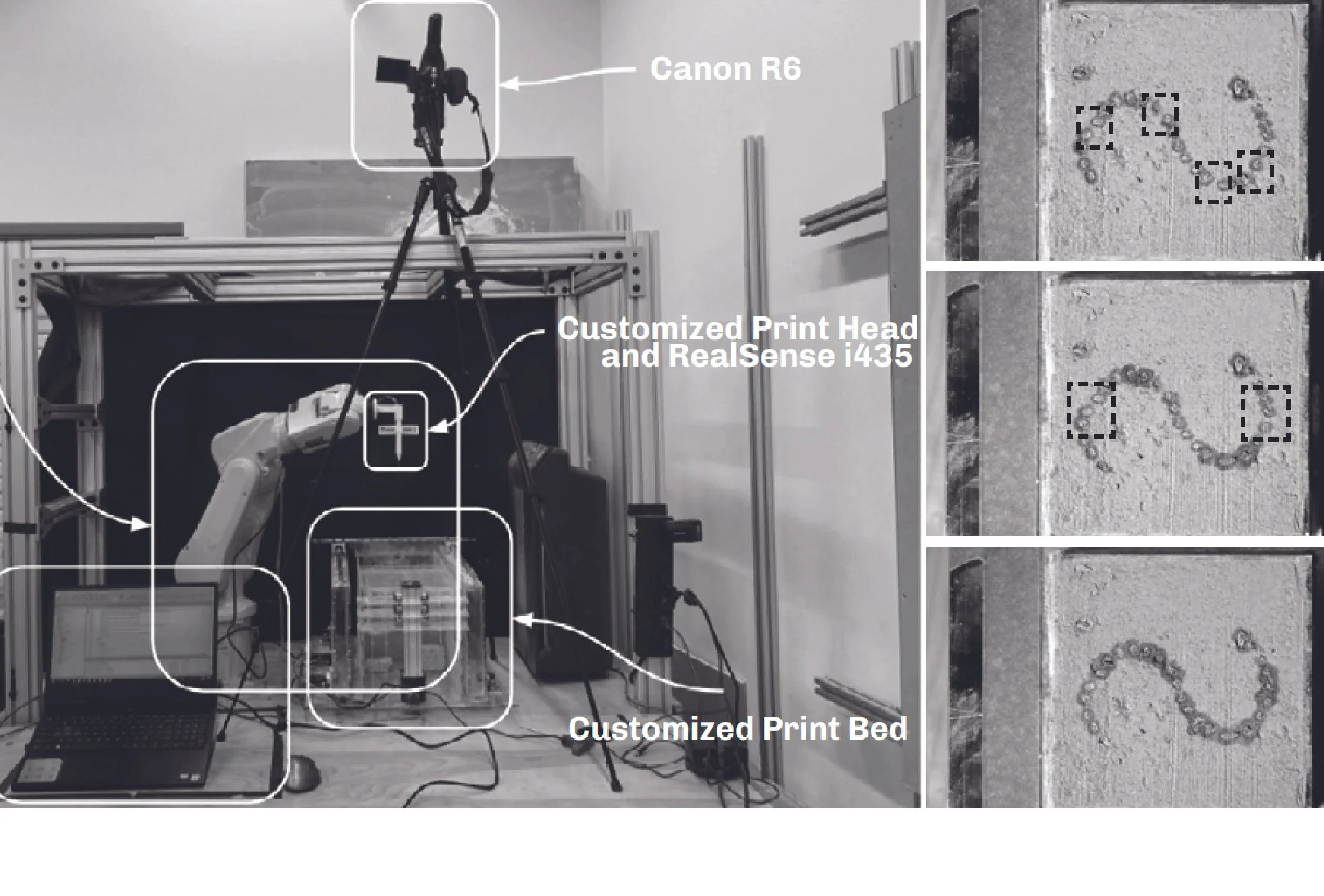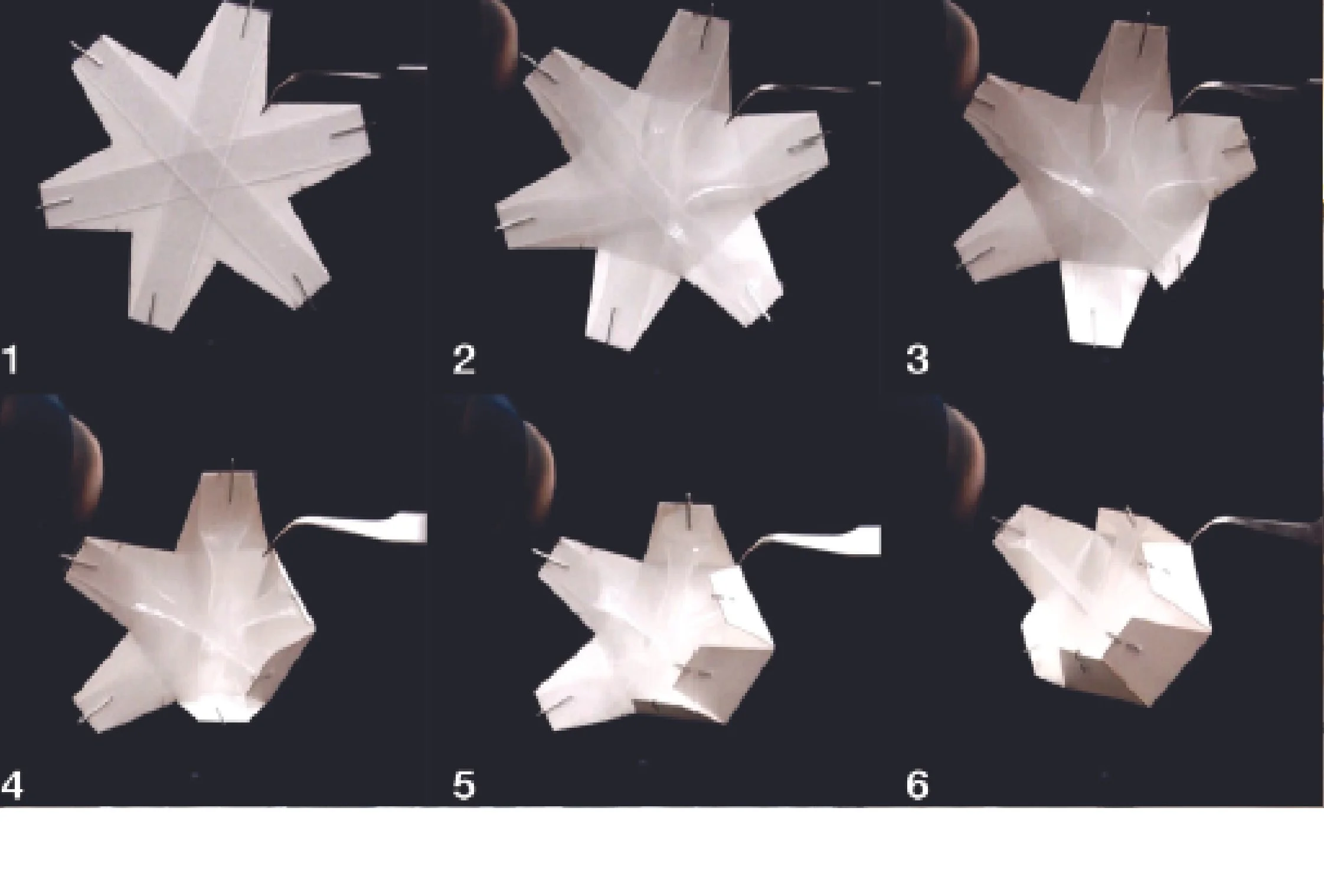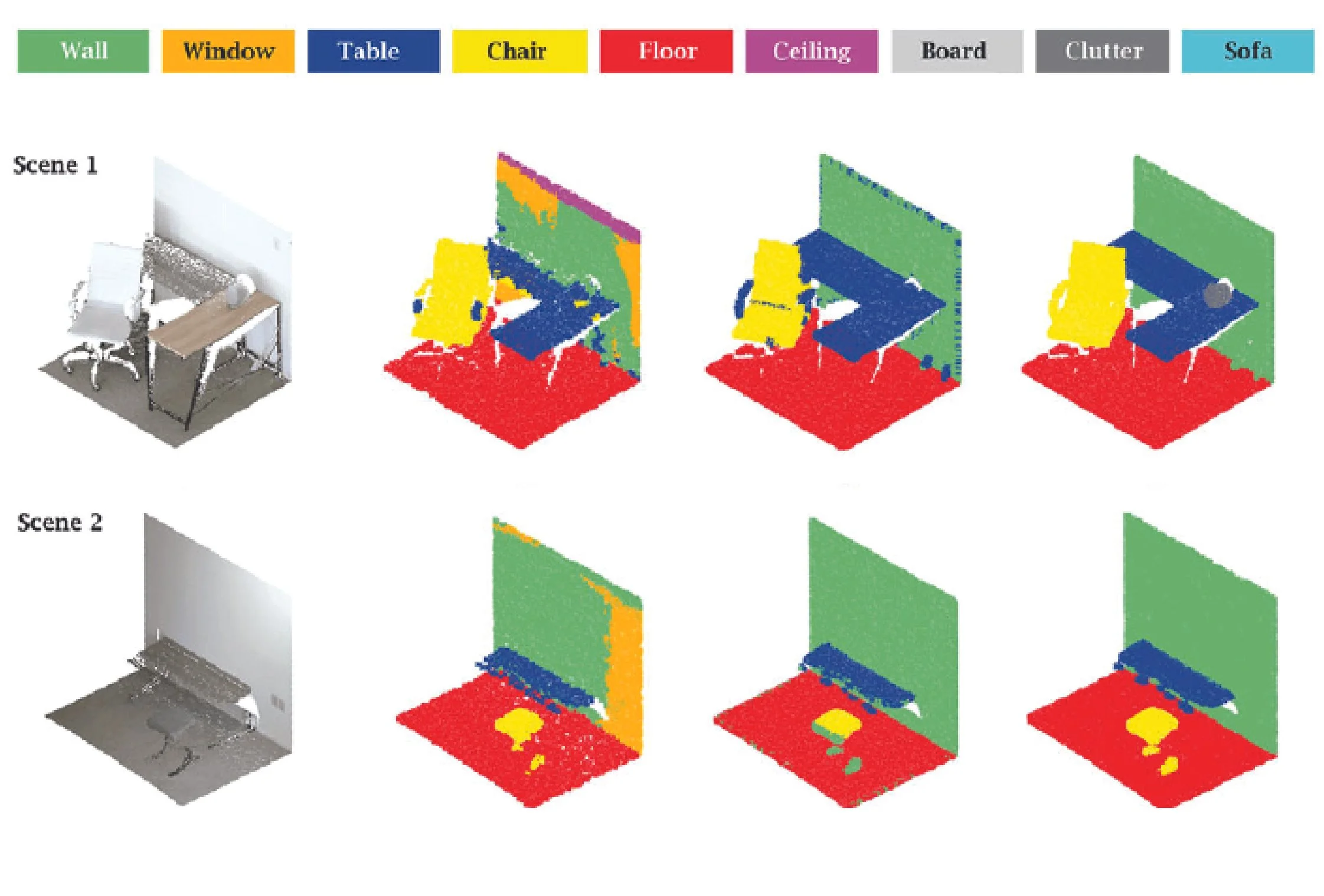CREATIVE ROBOTICS
My research investigates creative robotics as a frontier where design, computation, and machine intelligence converge, not merely as an extension of industrial automation but as a profound reconfiguration of the creative act itself. Robotics, in this sense, ceases to be a neutral instrument and becomes an active collaborator, one that mediates between human intention and material reality. By positioning robots as co-agents in processes of making, my work explores how they can augment human imagination, reveal novel material behaviors, and expand the expressive vocabulary of design beyond the limits of human dexterity and perception.
Proxemic-aware Augmented Reality For Human-Robot Interaction
The IEEE International Symposium on Robot and Human Interactive Communication (RO-MAN 2023)
Jingyang Liu, Hongyu Mao, Joshua Bard
Robust Visual SLAM with Integrated UWB Positioning for Construction Robotics
International Conference on Robotics and Automation (ICRA 2023) 2nd Future of Construction Workshop (Best Research Paper)
Jingyang Liu, Linxiaoyi Wan, and Joshua Bard
A Computational Framework For Robotic Quality Assessment and Management In Construction
International Conference on Robotics and Automation (ICRA 2022) 1st Future of Construction Workshop (Best Research Paper)
Jingyang Liu, Yumeng Zhuang, and Joshua Bard
Material Characterization of Workability and Process Imaging for Robotic Concrete Finishing
Construction Robtics
Jingyang Liu, Yi‑chin Lee, and Joshua Bard
Image-based Monitoring for Binder Jet 3D Printing of Coarse Composite Concrete Powders
In ACADIA 2023: Proceedings of the 43rd Annual Conference of the Association for Computer-Aided Design in Architecture
Linxiaoyi Wan, Jingyang Liu, Joshua Bard, and Dana Cupkova
RoboSense: Context-Dependent Robotic Design Protocols and Tools
In ACADIA 2016: Proceedings of the 36th Annual Conference of the Association for Computer-Aided Design in Architecture
Andrew Moorman, Jingyang Liu, and Jenny E. Sabin
Computational Design
My research investigates generative systems as catalysts for new forms of creativity and sustainability in design. By leveraging algorithms and data, generative design enables the exploration of vast, previously inaccessible solution spaces, where performance, efficiency, and aesthetic expression can evolve together rather than in opposition. Generative systems do not simply optimize; they expand the realm of the possible, revealing material innovations and adaptive design strategies that emerge through computational exploration.
At the same time, generative methods hold a democratizing potential, making advanced design intelligence accessible to broader communities of practitioners. In this paradigm, the designer becomes a curator of possibilities, guiding emergent forms toward outcomes that are not only efficient but also culturally resonant, sustainable, and human-centered.
Computational Design and Fabrication of Highly Customizable Architectural Space Frames
International Journal of Architectural Computing 19, no. 1 (2021): 37-49.
Jingyang Liu, Yi-Chin Lee, and Daniel Cardoso Llach
Programmable Kirigami
IDETC-CIE, American Society of Mechanical Engineers, 2019.
Jingyang Liu, Grace Chuang, Hun Chun Sang, Jenny E. Sabin
A Semantic-Based Approach to Digital Content Placement for Immersive Environments
The Visual Computer 39, no. 12 (2023)
Jingyang Liu, Yunzhi Li, Mayank Goel
Lumen
In ACADIA 2018: Proceedings of the 38th Annual Conference of the Association for Computer-Aided Design in Architecture
Jenny E. Sabin, Dillon Pranger, Clayton Binkley, Kristen Strobel, and Jingyang Liu
